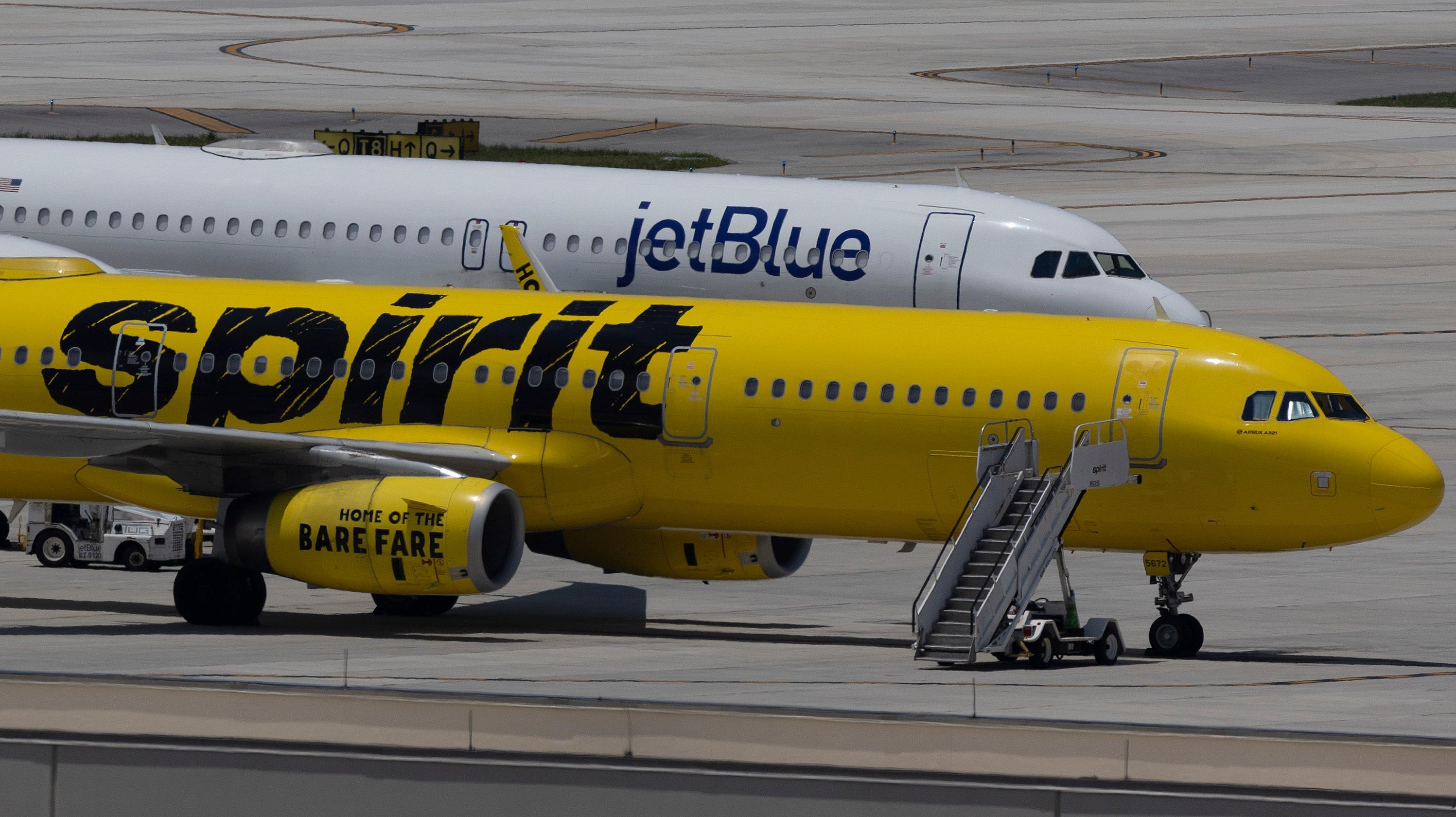The Bidding War For Spirit Airlines Nears Conclusion
Frontier Airlines might have finally convinced Spirit's shareholders to approve its latest offer
In February, Frontier Airlines announced a planned $2.9 billion acquisition of Spirit Airlines. JetBlue Airways revealed its rival $3.6 billion all-cash bid in early April, sparking a bidding war for Spirit between the two carriers that has continued ever since. Either potential merged airline combination would become the fifth-largest in the United States. Though, it seems the war is finally coming to an end with Frontier and Spirit reaching agreeable terms.
The biggest roadblock to Frontier's acquisition of Spirit Airlines wasn't any offer proposed by JetBlue but Spirit's own shareholders. At the start of June, Institutional Shareholder Services, a proxy advisory company, implored shareholders not to vote for the Frontier deal. Spirit then delayed the vote on the acquisition until June 30th. The management of the Florida-based airline stated that it delayed the vote because of the lack of shareholder support but continued seeking a better deal with Frontier as its first option.
Today, Institutional Shareholder Services has reversed its stance and recommended a vote for a new deal with Frontier Airlines. ISS stated, "Shareholders are best served by taking the deal that provides the best combination of long-term value and compensation in the event of regulatory rejection. On balance, support for the merger with Frontier on the revised terms is warranted." Frontier raised his purchase bid by $2 per share ($4.13 per share), matching an increase from JetBlue. Frontier also raised its reverse termination fee to Spirit to $350 million, an $100 million increase.
JetBlue's current $3.7 billion offer might sound enticing, but the New York-based airline has done little to ease Spirit's worries that government regulators won't actually approve the deal. JetBlue is currently under anti-trust investigation for its strategic alliance with American Airlines. When asked by Spirit to end the controversial partnership to further negotiations, JetBlue declined. This rebuffed demand somewhat indicated that JetBlue simply wanted to disrupt the creation of a direct industry rival.
